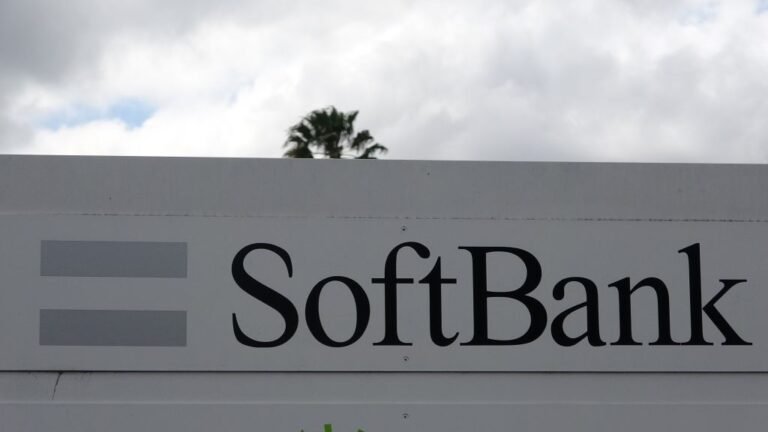
Despite a challenging economic period in 2022, this year’s investment into the space tech sector has continued to show signs of recovery.
Space tech has showcased a remarkable resilience amid macroeconomic uncertainty, bucking trends in the broader venture capital tech market.
Approximately $4.8 billion was invested into the space tech industry by the end of Q3, with growth-stage investment activity increasing.
These DoD contracts will stimulate a cascading effect throughout the broader space tech market.
This surge is expected to be catalyzed by strategic initiatives from respective governments, underscoring a global expansion and diversification of venture capital interest and commitment in the space tech sector.

Softbank is selling its Open Opportunity Fund to its chairman and managing partner, Paul Judge, and Marcelo Claure, who is being appointed the fund’s vice chairman and general partner.
Judge and Claure will fully own the firm’s $100 million Open Opportunity Fund 1, the $150 million Fund 2, as well as the entire portfolio.
Claure called the acquisition a “significant milestone,” saying it “demonstrates a concrete move towards more diverse representation within all layers of the venture capital ecosystem.”Softbank rebranded its Opportunity Growth Fund to Open Opportunity Fund (OOF) earlier this year, and appointed Judge as its chairman, who became co-owner of the Fund.
Fund 1 deployed $100 million in 75 Black-and-Latino companies, yielding seven exits and 46 follow-on rounds.
Fund 1 companies may also receive funding from Fund 2 on a “case-by-case basis,” Judge said.

SimSpace, a startup that creates digital replicas of organizations’ tech and networking stacks for cybersecurity training, has raised $45 million in a funding round led by L2 Point Management.
And it’s expanding its private-sector customer roster, having shored up contracts with the U.S. Cyber Command, FBI and national cyber defense teams in unnamed U.S.-allied countries.
We’ve had to make hard decisions and to tough it out.”SimSpace’s origins lie in U.S. Cyber Command, where Hutchison designed and led a joint tactical cyber training exercise, Cyber Flag, drawing on the expertise of tech staffer Lee Rossey at MIT’s Lincoln Lab.
At the time, Rossey was working on creating cyber “training ranges” to simulate the IT production environments of companies and critical infrastructure.
“With SimSpace, because training occurs outside of a company’s network, it’s possible to ‘throw the kitchen sink’ at cyber teams without breaking something in an actual production environment and disrupting vital operations,” Hutchison said.

The investment is coming by way of Verdane taking a substantial stake Fountain Venture, the investment vehicle controlled by the founder and current chairman of Meltwater, Jørn Lyseggen.
Joakim Kjemperud, a principal at Verdane, said the deal also gives his firm a stake in an HR firm, Jobylon, although Meltwater is by far the bigger asset.
In that context, it’s notable that Verdane opted to invest in Fountain Venture rather than directly in Meltwater.
That will give Verdane not only the stake in Meltwater, but also a stake in Jobylon and whatever else Fountain and Lyseggen find interesting.
Meltwater built AI in-house and has acquired a stream of businesses in an analytics consolidation play.

Welcome to the TechCrunch Exchange, a weekly startups-and-markets newsletter.
It’s inspired by the daily TechCrunch+ column where it gets its name.
This week, I’m reminded that democracies are fragile but that technology can help.
On a side note, this newsletter will be taking a break until January 6 next year, so wishing you all happy holidays.
— AnnaWhy agentic tech?

Innovation in clean tech and renewable energy is moving fast — maybe a bit too fast.
The clean tech industry is expected to create 8 million jobs by the end of 2030, according to a recent report by the International Energy Agency.
These numbers are apparently based on current policies, and if more resources go toward the clean energy transition, the report’s authors expect the number to rise, too.
The startup hires and trains folks to install and maintain sustainable heat pumps.
It trains people new to the trades, provides upskilling training to those who have some experience, and has its workers install and maintain equipment for other companies.

The best tech gifts under $50 to consider in 2023 Tech gifts that loved ones will put to use don't have to come with a hefty price tagIf you’re looking for a gift for someone but don’t want to break the bank, there are a number of great gadgets you can choose from.
AirTagAn AirTag is a great and useful gift for the person in your life who often misplaces their belongings.
Tile ProThe Tile Pro is a great gift for both Android and iOS users.
Anker 313 Wireless Charger StandThis wireless charger stand is great for anyone who doesn’t already have one.
PhoneSoap Basic Cell Phone UV Light Sanitizer BoxA UV phone sanitizer is a great gift for anyone with a phone.

There’s no one-size-fits-all solution to raising money, but David walks through some of the options to help you choose the right one for your business.
— Emerging EntrepreneurHere’s where founders screw up their pitch decks most oftenResident pitch expert Haje Jan Kamps trained an AI model on thousands of pitch decks; the tool analyzes pitch decks and offers feedback.
Get the TechCrunch+ Roundup newsletter in your inbox!
Before choosing your deep tech fund manager, it’s probably a good idea to answer some questions like: Does their investment approach make sense?
A good CRM can help you track interactions, remind you to follow up with people, and produce in-depth reports.

There are some minor redactions, but the bulk of this slide deck is intact.
In 2022, around 300 million liters of sustainable aviation fuel was produced, and that doubled this year to more than 600 million liters, per the International Air Transport Association (IATA).
Let yourself nerd out about the techWhen you’re building a deep tech company, the tallest pole in the tent is always going to be the tech itself.
Make it work, then make it work at small scale, then scale to production scale.
In the rest of this teardown, we’ll take a look at three things Metafuels could have improved or done differently, along with its full pitch deck!

As 2023 comes to a close, a critical cohort of tech companies has regained the value it lost after the summer rally, potentially setting the stage for a stronger IPO cycle in early 2024 than some may anticipate.
Earlier this year, we saw three companies go public in quick succession: Arm, Instacart and Klaviyo‘s IPOs represented a liquidity peak, but they failed to inspire other tech companies to a rush towards the public market.
The three companies had pretty good IPOs, too, but they mostly failed to make the sort of splash some had hoped for.
Arm’s stock has performed well compared to its IPO price (trading at $71.30 per share today, up from its $51 list price), but Klaviyo and Instacart haven’t fared as well.
Klaivyo’s shares are trading 24 cents above its IPO price, while Instacart’s stock is trading at about $5 less than its listing price this morning.













